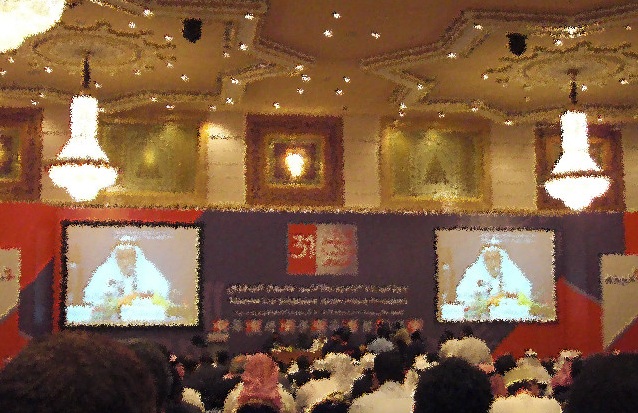|
[Back to Top Page]
In general, the research field of Islamic finance, which is often called “Islamic economics,” is closely related its industry. This is because in the twentieth century, Islamic economics emerged as a movement to launch a new economic system in the modern world, which is based on Islamic teachings, and subsequently, it was required to submit practical designs to those who wished to establish Islamic economic institutions such as Islamic banks. To date, a considerable number of works have been released and most of these contain such practical claims and recommendations, even if their authors are purely academic scholars.
In contrast, my research neither contains any claims, policy recommendations, and useful information for the industry, nor shows a new interpretation of the Islamic jurisprudence of the Sharia scholars’ circle. Therefore, the tone of my research seems peculiar or peripheral in the literatures of Islamic economics. In this short essay, I attempt to explain why, being a Japanese academic researcher, I am engaged (or should be engaged) in such a research with such tone.
| Islamic Finance, Islamic Economics, and Japan |
The first reason is that Islamic finance is not necessarily thriving in the domestic market; therefore, there is little demand for writing practical papers for the industry. Since 2001, several Japanese banks and insurance companies have entered the Islamic financial markets overseas. In contrast, Japanese banks are extremely reluctant to start providing Islamic financial services in the domestic market in spite of the fact that the Japanese government amended the Banking Law in December 2008, which enables domestic banks to open subsidiaries engaging in Islamic finance. Currently, there are no Islamic banks or Islamic branches in Japan. Although they have jointly established a practical research team on how to launch Islamic finance in the domestic market, their research is limited only to primary investigations and mainly relies on the advice of world-famous Sharia scholars and local consultants. In such a situation, there is no scope for Japanese academic researchers to write practical papers for the industry. Of course, I can write such kinds of papers responding to scarce demand, but this will reduce the raison d’être of academic researchers in terms of a comparative advantage.
The second reason is that my original motivation to study Islamic finance is not to commit to the practical movement to launch the Islamic economic system but to find some crucial keys to criticize modern capitalism from this movement. It is well known that the movement of Islamic economics originally aimed to provide an alternative way to modern capitalism. However, it seems that the current practice of Islamic finance almost abandons this motivation. This is because Islamic finance develops nearly similar products as well as modern capitalistic finance in order to be highly competitive with it. It can be said that my research aims to rediscover this original motivation of Islamic economics and to find a distinctive feature of the economic concept of Islam. This means that I ought to write on “what Islamic finance is,” not “what Islamic finance should be.” Here, we should consider that our explanation should be such that mainstream economists can fully understand its argument. This is because existing literatures on Islamic economics have been criticized as “dogmatist” and as displaying the tendency to be satisfied only when discussions are held on their terms. The underlying feature of Islamic finance is written with this criticism in mind.
The third reason is that studies on Islamic finance are still inadequate in Japan; therefore, Japanese academic researchers need to adopt an original or unique approach in order to show their comparative advantage over the considerable number of works released in Islamic economics. In my opinion, there are two ways to show this advantage: 1) analysis from an outsider’s perspective and 2) historical approach. The first approach is what I adopt in the paper “Beyond the Theoretical Dichotomy in Islamic Finance: Analytical Reflections on Murabahah Contracts and Islamic Debt Securities.” Most works that contain any claims and policy recommendations are written
from the author’s individual standpoint, and subsequently, they tend to
ignore opinions provided by the opponent party or have no interest in such
opinions. Therefore, it is extremely difficult for readers to understand
the point and framework under arguments. In contrast, my paper adequately
presents the opinions of both proponents and opponents regarding the arguments
on Murabahah and the Islamic debt securities, and clarifies the framework
of the arguments. As for the second point, the historical approach, I adopt
another paper “Islamic Finance in Economic History: Marginal System or Another Universal
System?”
| Towards "Global Islamic Economic Studies" |
My research methodology is beyond the realm of Islamic economics, although
I learn considerably from it. Therefore, I want to call this new methodology,
which has its own features of “third-party perspective” and “historical
approach,” as “Global Islamic Economic Studies.” Islamic economics is not
necessarily understood by outsiders such as mainstream economists because
it has not had sufficient conversation with mainstream economics or because
it has been completely absorbed into mainstream economics. “Global Islamic
Economic Studies” will not only present issues regarding the current theory
and practice of Islamic finance as mentioned in this paper but also consider
how basic economic concepts such as money, labor, and market are treated
in Islam (both in history and present days). When we can clarify the distinctive
features of these concepts in Islam with an explanation that mainstream
economists can fully understand, we can have a better conversation with
mainstream economics. This does not indicate the convergence of Islamic
economics into mainstream economics. Instead, we can cast doubt on the
universality of mainstream economics by showing a different world on an
equal footing.
[Back to Top Page]
|

